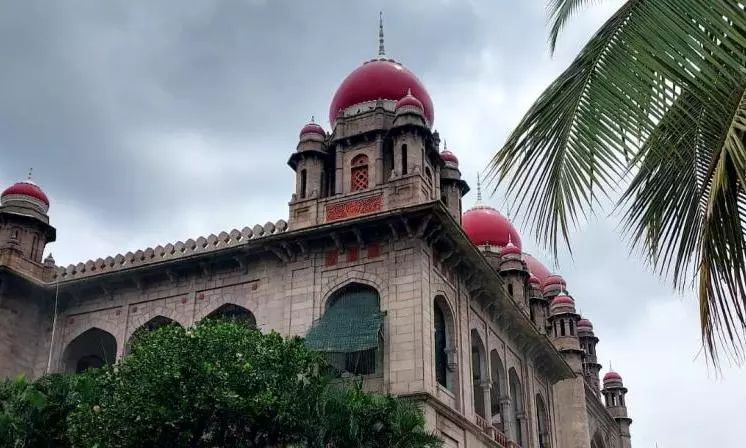CEC to respond on Excise Officers postings
A two-judge panel of the Telangana High Court directed the Election Commission of India (ECI) to respond in a PIL on the special treatment given to excise department officials qua election duty. The panel comprising Chief Justice Alok Aradhe and Justice J. Anil Kumar was dealing with a PIL filed by Bandili Nagadhar Singh. The petitioner sought a direction to include the transfer of excise and prohibition officers concerned with election duties on par with officers of the police and revenue departments without discrimination. The petitioner challenged a proceeding issued on February 27 by the Election Commission of India wherein it was clarified that district and other officers of the education department, revenue department and the Director General of Police and police officers shall be posted to different parliamentary constituencies they had completed three years of service during the past five years in the same parliamentary constituency or district. The oetitioner contended that clarification with regard to the excise and prohibition department, the officials were exempted from transfer from the parliamentary constituency where they are working; the exemption according to the petitioner was illegal. The panel accordingly posted the matter to April 25 for the ECI to file its counter. It was the specific case of the petitioner that there was no rationale to exempt excise officials from doing election duty in the same manner as in other departments and permitting them to do so in their parliamentary constituency.
Move appropriate court for de-freezing account HC
Justice B. Vijaysen Reddy of the Telangana High Court directed Medicare Pharma to approach the appropriate criminal court for de-freezing its bank accounts. The judge was dealing with a writ plea filed by Medicare Pharma Distributors complaining that the Rajendranagar inspector had directed the Bank of Baroda to freeze the current accounts of the petitioner. The petitioner complained that loan amounts were lying in the bank accounts and their business transactions were affected by the action of the authorities. Counsel for the petitioner argued that such a direction from the police authorities was illegal and against the provisions of the NDPS Act. Counsel appearing on behalf of state informed the court that there was an investigation pending against the petitioners and the action of freezing the accounts was in accordance with the law. The judge on considering the arguments directed the petitioner to move an application before the trial court for de-freezing its accounts and refused to grant relief under Article 226. The judge, however, made it clear that if any such application was made before the trial court, the same shall be adjudicated within a period of two weeks.
HC directs civic authorities to execute Speaking Orders
Justice T. Vinod Kumar of Telangana High Court directed the GHMC to take appropriate action if the parties failed to comply with the Speaking Order for the demolition of irregular or unauthorised constructions. The order came in light of increasing petitions before the High Court that the civic authorities pass orders but fall short of implementing the same and allow illegal structures to stay. The judge was dealing with a writ plea filed by Nandigama Narsimulu challenging the action of GHMC deputy commissioner in closing the complaint without considering the representation of the petitioner made on January 18. The petitioner complained that the unofficial respondents misrepresented and submitted fake sale deeds before the municipal authorities and obtained construction permission for undertaking construction of two independent houses at Srinivasnagar Colony, Sangareddy. Standing counsel appearing for the GHMC informed the court that the Speaking Orders were passed and communicated to the unofficial respondents. Counsel appearing for the unofficial respondents informed the court that they would act upon the Speaking Orders. The Judge accordingly directed the GHMC to take appropriate action against the unauthorised and illegal constructions if the unofficial respondents faile to comply with the Speaking Order.


